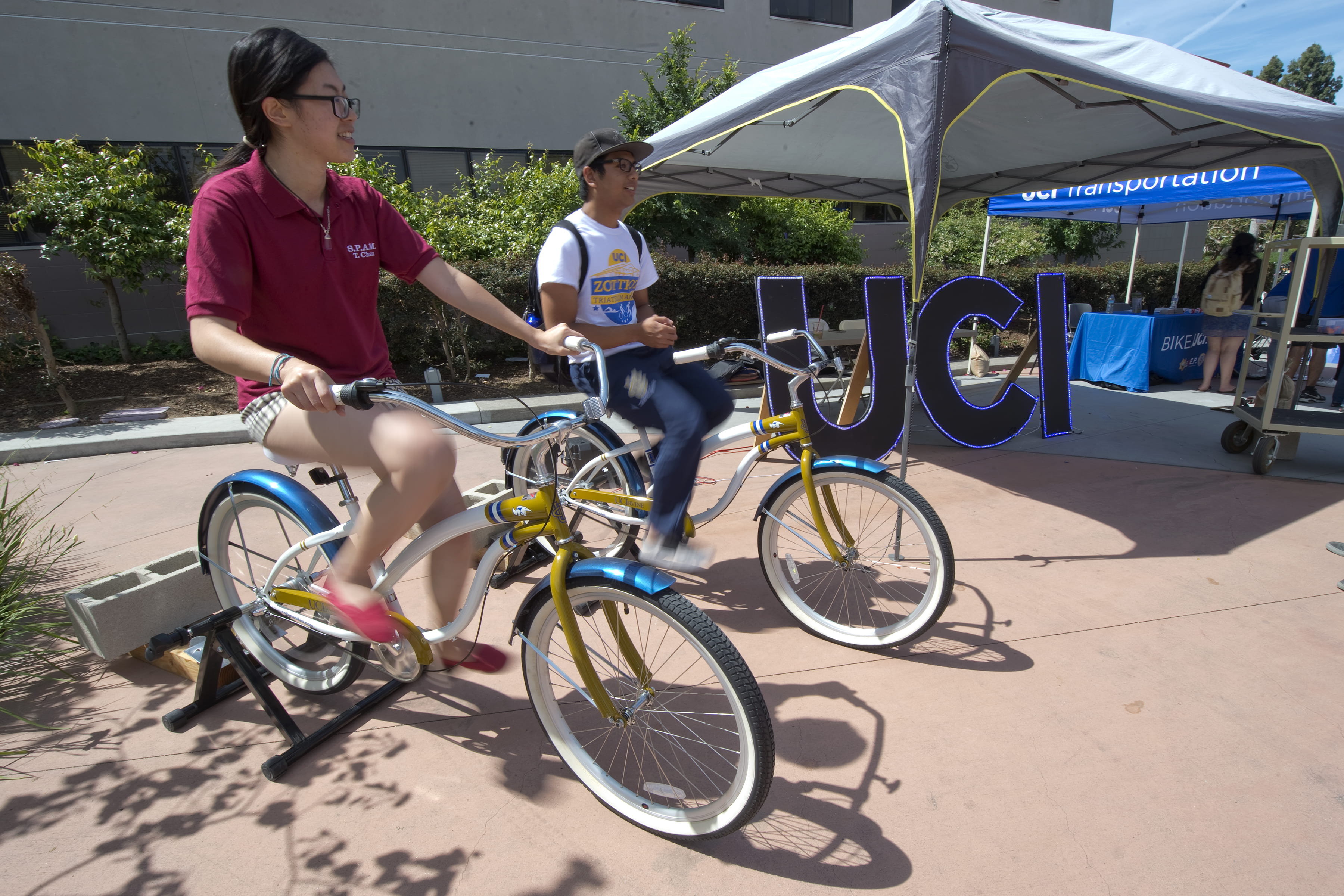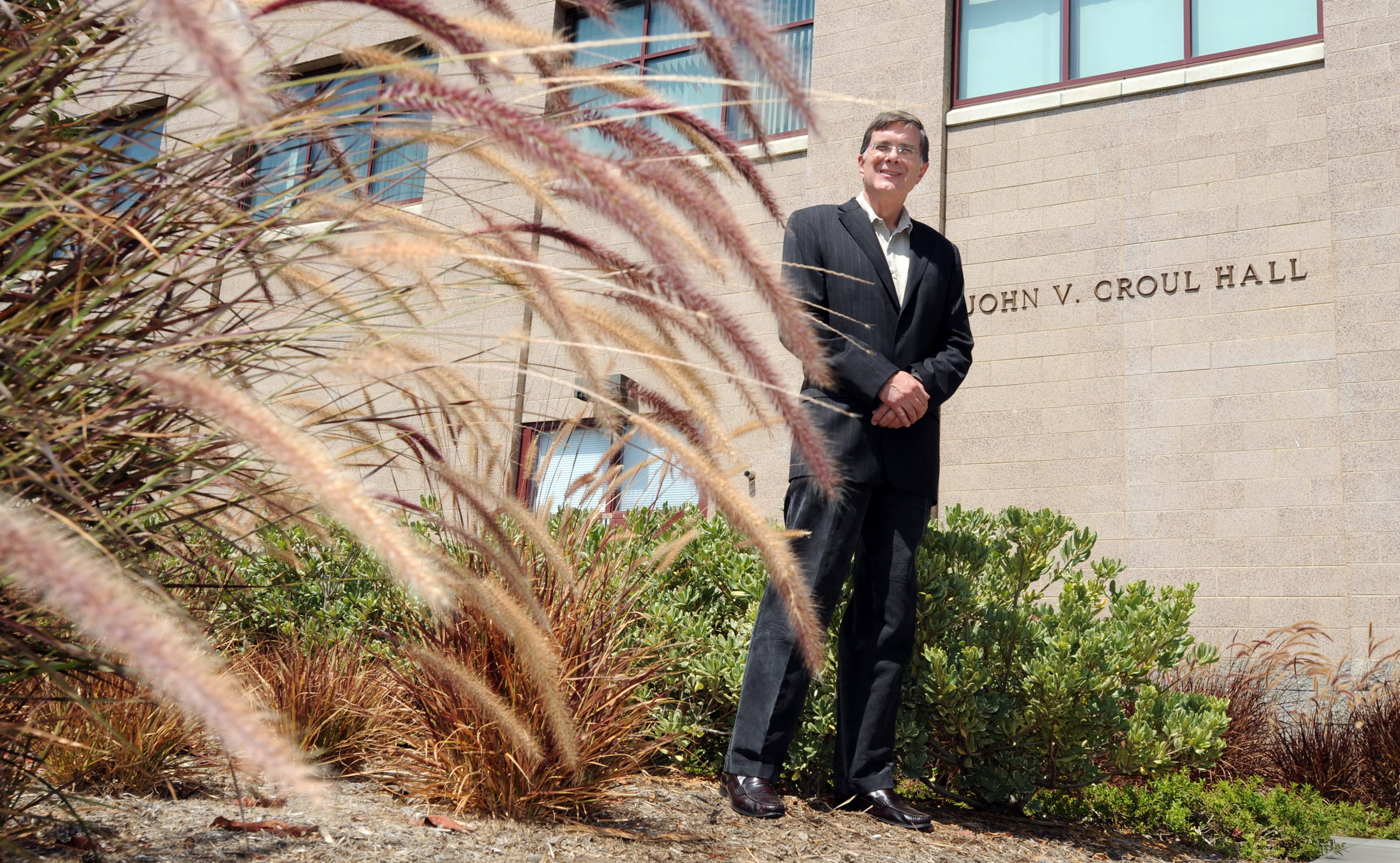Business embraces sustainability
The Paul Merage School of Business explores companies’ love affairs with sustainable practices.

In a business climate beset by rising energy prices, growing scarcity of natural resources and pressure from emerging economies, companies are turning to sustainable practices to stay competitive, profitable and innovative.
But what does “sustainable” really mean, and how can companies go green while improving their bottom line?
The Brundtland Commission of the United Nations came up with the most widely quoted definition of sustainable development in 1987, calling it “development that meets the needs of the present without compromising the ability of future generations to meet their own needs.”
Noted environmentalist, entrepreneur, journalist and author Paul Hawken elaborated: “Sustainability is about stabilizing the currently disruptive relationship between Earth’s two most complex systems – human culture and the living world.”
To learn more about what it means to go green – in advance of its global business conference Profit Plus Planet? to be held a March 24 – UC Irvine’s Paul Merage School of Business recently consulted top executives with its Dean’s Advisory Board. Here are some of their thoughts.
Q: How would you define sustainability?
Nam Woo, immediate past president and CEO of the China subsidiary of South Korea-based LG Electronics: “Sustainability is long-term thinking, as opposed to profitability, which is more short-term thinking. For me, sustainability is more of a balanced diet, where profitability is like sugar candy. Without a focus on sustainability, Korean companies, for example, would not be where they are today.”
Q: Sustainability measures are transforming the competitive landscape and ushering in a paradigm shift in business models. How are companies reinventing themselves to meet the needs of their markets and maintain a competitive edge?
Julie Hill, owner of The Hill Co. (real estate) and director for WellPoint, Lord Abbett Mutual Funds and Lend Lease: “Companies are beginning to move beyond the mindset of ‘We don’t want to get into trouble’ to ‘We want to look good’ – and then beyond that to ‘We want to do good.”
Ed Fuller, president and managing director of international lodging for Marriott: “Marriott has focused on sustainability both over the long term and with more intensity recently. For more than 30 years, our hotels outside the U.S. have been involved in sustainable activities. However, only in these last few years have we really started to focus on it in the U.S., as our customers and guests here have become more sustainability-focused. We have put tremendous emphasis on using resources like solar power to produce electricity and reducing water, waste and energy throughout our properties. These efforts are not just about saving money; they’re about generating money.”
Michael Aghajanian, executive director of the Merage School’s executive education programs and former CEO of management consulting firm PRTM: “In the ’80s, the mindset was that you could have either quality or low cost, but not both. That has been proven false. Sustainability runs parallel to that thinking. The things you can do to be sustainable can create a lower-cost environment.”
Q: Do you believe innovation in sustainable practices drives business growth?
Woo: “Yes. China is a good example. I visited Beijing at the end of 2005, and the sentiment there was that no one wanted to go green. The Beijing Olympics was the turning point. With the spotlight on it, the country began to feel pressure to change its practices. Today there is still a lot of room for improvement, but the people there understand that sustainability is an important issue – not only for the government, but for businesses that want to succeed.”
Fuller: “In China, sustainability is now at the forefront of everyone’s thinking; it’s in the media, and we in the U.S. had better take heed. Once China gets focused, it’s off and running.”
Hill: “Consumers have a tremendous amount of power and influence over businesses and, inadvertently, over supply chains. If consumers demand eco-friendly products, businesses must deliver to stay competitive.”
Aghajanian: “Suppliers need to be challenged to think outside the box. Consider the carbon footprint of developing and building products overseas and shipping them here. Why not build products in closer proximity to your company and your customer base? With companies growing increasingly aware of their global carbon footprint, some practices just don’t make sense, and companies are forced to rethink their strategies.”
For a full transcript of the roundtable discussion or to register for the global sustainability conference, visit www.profitplusplanet.com.


